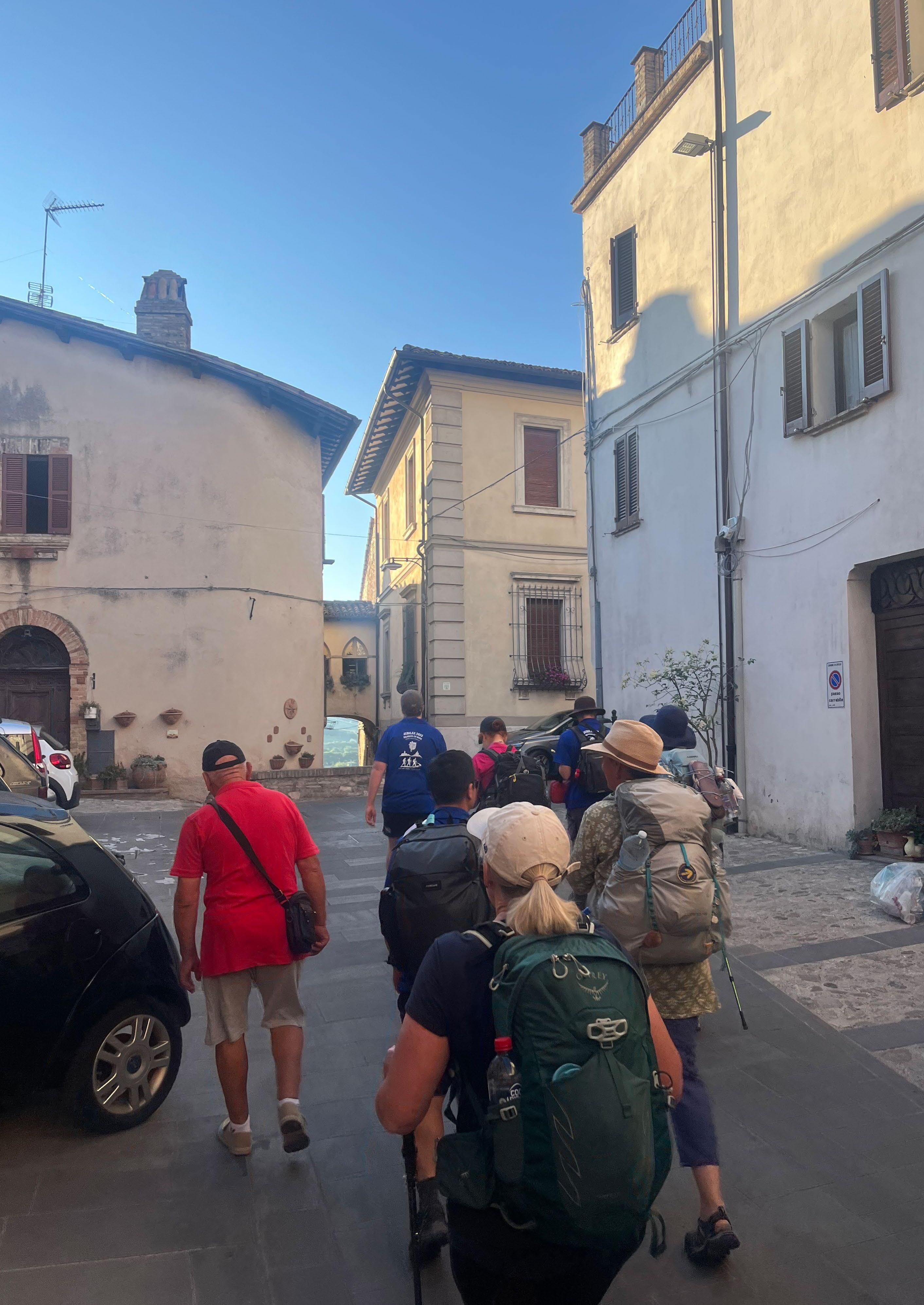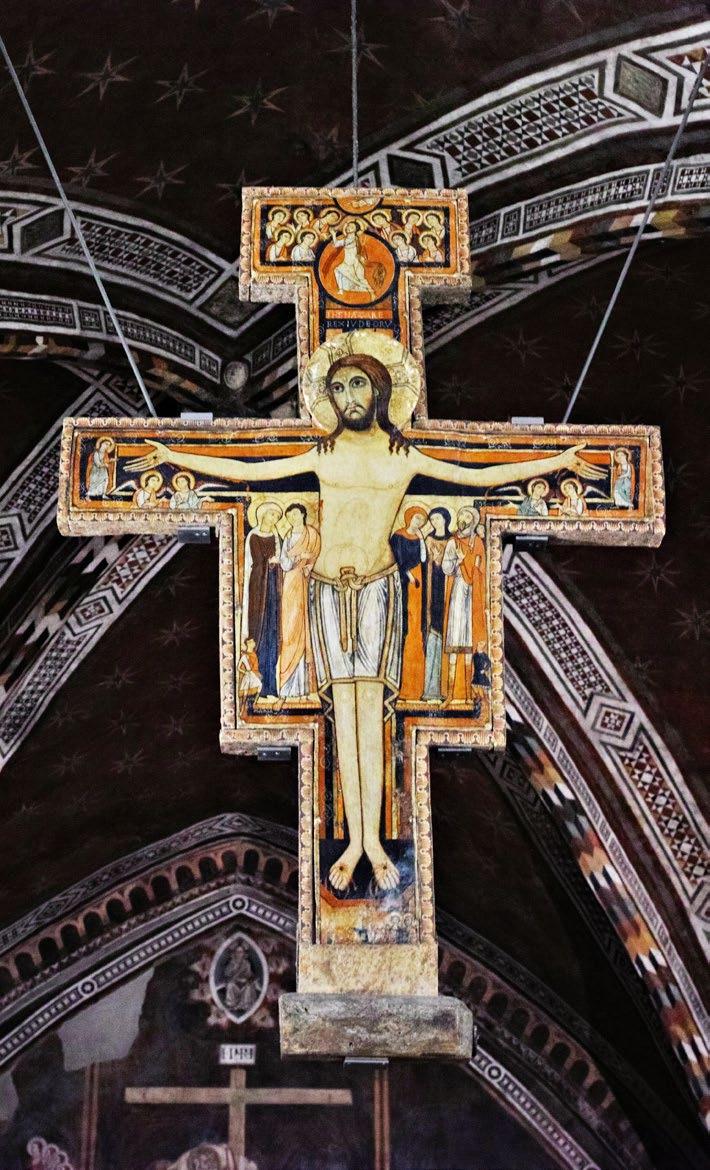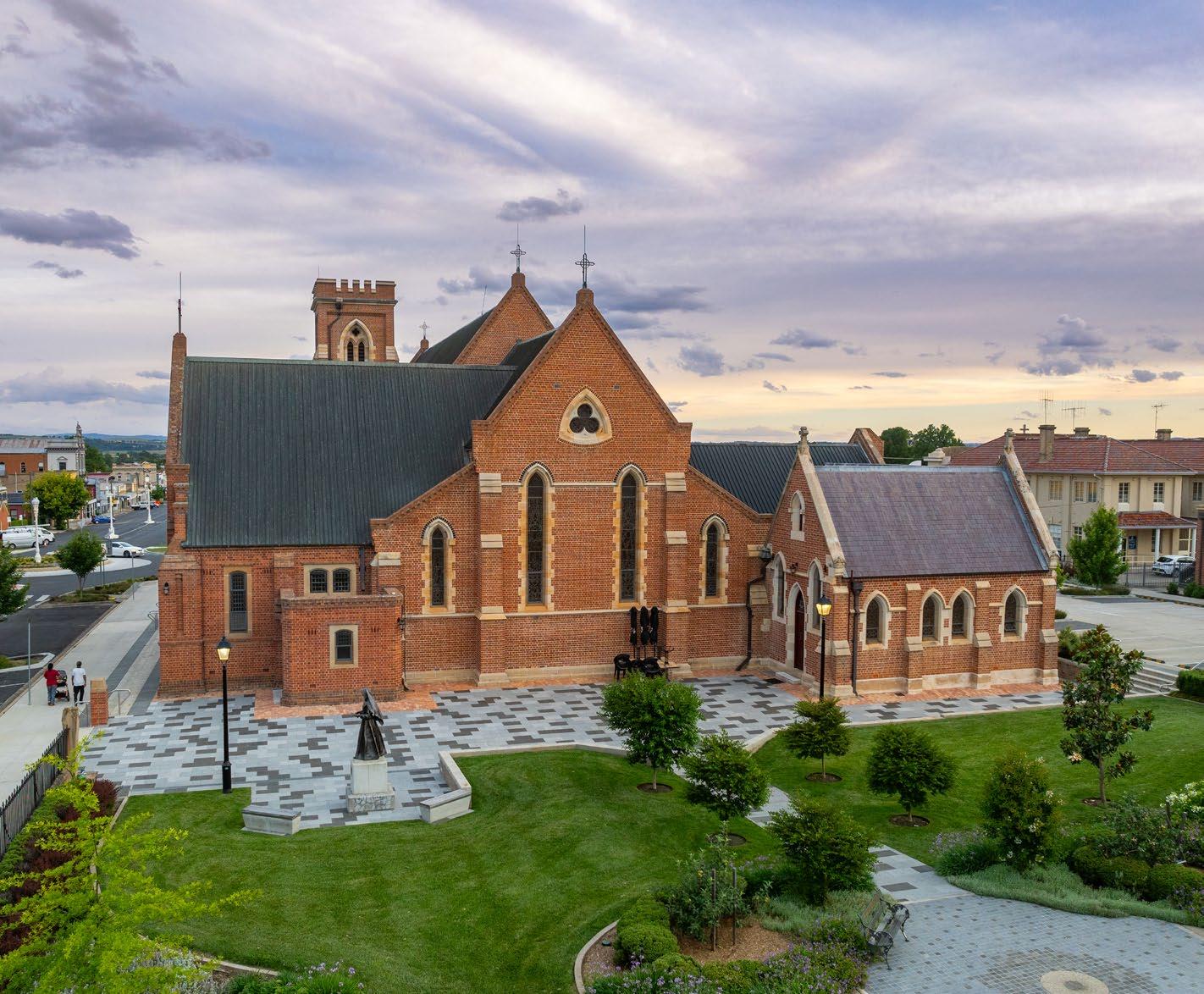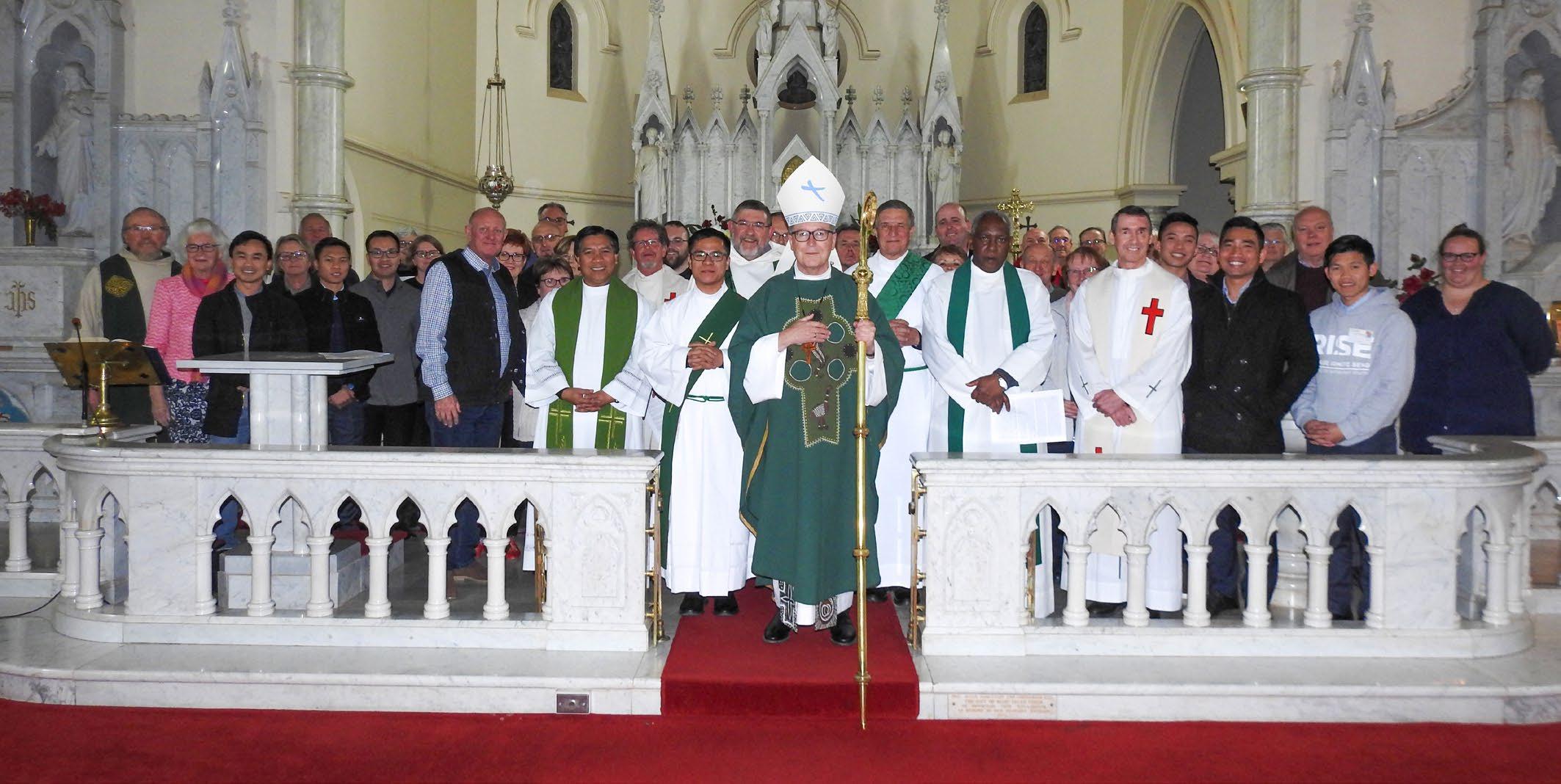
We are the times Participating in Communion for Mission
A PASTORAL LETTER TO GOD’S PEOPLE OF THE DIOCESE OF BATHURST


Dear Friends in Christ,
The title of this letter comes from a sermon given by St Augustine, who was Bishop of Hippo from 395 to 430. The times he lived in were what the ancient curse called “interesting”. Augustine’s diocese and her neighbours suffered the ongoing schism among Christians caused by the Donatist “pure church” heresy: at the same time, politically and militarily, the once mighty Roman Empire they inhabited was disintegrating around them.
The times we live in are volatile too. Billions of our sisters and brothers on this planet live in poverty. Hundreds of millions of them are displaced from their homelands.
And this is worsened by the exploitation of human beings and of our common home; and directly connected to the hundreds of wars and local conflicts which ravage the world. As powerful international forces compete, ordinary people are ground up in the wheels of history and commerce: and the opportunities of new technologies are also the source of new anxieties.
Even in a comparatively prosperous and peaceful country like ours, there is unease about the future for many, as the relative gap between the richer and the poorer keeps growing. There are social tensions in a nation largely composed of immigrants and their descendants, who have yet to work out our relationship with the descendants of the original peoples of our land.
Beyond politics and economics, we experience that we are living in times of deep and perilous cultural change. As the late Pope Francis used to say, “it’s not just an era of change, but a change of era.” As Christians, this is the world we live in and are affected by, to which we have been called to minister in love as we proclaim the Gospel.
The words of St Augustine speak to us as they did to the people of his own day:
Bad times! Troublesome times! This is what people are saying. But let our lives be good; and the times are good. We make our times; such as we are, we are the times. But what can we do? We cannot, it may be, convert the mass of people to a good life. But let the few who do listen live well; let the few who live well bear the many who live badly.
These words echo St Paul’s Letter to the Philippians (2:14-15): Do all things without murmuring and arguing, so that you may be blameless and innocent, children of God without blemish in the midst of a crooked and wayward generation, in which you shine like stars in the world.
They also resonate with another early Christian image of the Church as a leaven in society; or, as Jesus himself said, salt to the earth and light for the world (Matthew 5:13-14).
Back in 2012, I began a pastoral letter to you with these words:
Eight hundred years ago, a young man went into an old church to pray. St Damian’s, just outside Assisi, was in bad need of repair, but it was quiet. And it had a beautiful crucifix, which you can see on the cover of this letter. As the young man prayed, looking at the figure on the cross, he heard Christ call him by name. “Francis, rebuild my house, which as you see is falling into ruin.”
Francis thought he understood, and went off at once to get building materials. He and his friends did repair St Damian’s, as well as several other old churches. As they travelled around, unburdened by possessions, they also began to preach the Gospel to anyone who would listen. Their simple, joyful lives persuaded people more than their words.
When Christ called Francis of Assisi to “rebuild my house” he was talking about the Church, not just her buildings. What Francis and his companions did with bricks and mortar was a tangible and visible symbol of a deeper work of renewal they were beginning.
The purpose of that Letter was to call a Diocesan Assembly on the weekend of Pentecost the following year. By the time we gathered, we had a new Pope, who took the name Francis, and who encouraged us all on that very journey of co-responsibility which we had begun. Pope Francis began to use the term “synodality”. Although sometimes misunderstood, it
attempts to describe a way of working together as a people tuned in to God the Holy Spirit.
Allow me to quote again two important teachings of the late Pope:
First, in an address to the Ukrainian bishops, he said:
Today we are in danger of believing that to make a synodal journey, or to have an attitude of synodality, means taking a survey of opinions and then coming to some sort of agreement. A synod is not a parliament. You must say things, discuss them as you normally do, but it is not a parliament. Unlike politics, a synod is not a series of agreements: “I give you this, you give me that”. It is not a question of conducting “sociological investigations” regarding what needs to change, and how to go about changing it. A synod is only a synod if the Holy Spirit is present.
Second, in a letter to German Catholics, he wrote:
God deliver us from a worldly Church under spiritual or pastoral draperies! This suffocating worldliness undergoes healing when one tastes the pure air of the Holy Spirit, who frees us from revolving around ourselves, hidden in a religious pretence above godless emptiness.
From our first Diocese of Bathurst Assembly grew a Pastoral Council, which organised an Assembly every year from 2015 until 2019. In between the Assemblies, the Council’s six working groups carried on the work of participation, communion and mission in the areas we had identified as priorities:
continued over page

1. Hearing and Proclaiming the Word of God;
2. Worshipping God in Prayer and Sacrament;
3. Building Communities of Love and Service;
4. Participation of Indigenous Catholics;
5. Participation of Young People; and
6. Participation of Families.
After the interruption of the pandemic, followed by our national Plenary Council, then two sessions of the Synod of Bishops in Rome, we are ready to start again here.
Let’s put ourselves, together, at the service of God, who shows the way and gives the increase. We rejoice at the signs of growth we have seen so far, for example, in evangelisation and formation, especially among young people. As we take our next steps together, we know that true success is measured by our fidelity to God’s will; and that how we carry out our mission together is more important than quick results.
So, rather than moving immediately to another Diocesan gathering, I have asked each parish to hold its own assembly. It is important to understand this, not as a one-off event, but as a process aimed at widening the circles of participation in each parish and eucharistic community. We are developing ways to help parishes prepare for, celebrate and follow up these assemblies, each in its own way. I have asked each parish priest to nominate a contact person to keep in touch with our diocesan Walking Together group.
I have also asked each parish to set a date and time, during Advent, for parishioners to come together for a penitential service to prepare the way for their coming assembly. This will serve as an early announcement of the work that is about to begin, as well as an orientation in a spirit of humility and openness to the grace of God.
Each parish assembly will be an opportunity to consider the gifts that God has given us: how well we are using them, or how we are neglecting them. The six themes I quoted above which we have used in past assemblies are very broad headings. Each parish can use them to specify its thinking about what it could do better; its consideration of what it should stop doing; and its imagining of what it could start doing.
We are the times. We did not choose the times we were born into, but here we are now. We can lament and disengage: or we can claim the promise of our Baptism and let Christ live in us; we can be with him the light which cannot be overcome, shining in the darkness. Our actions may seem small to the world, even to ourselves, but God measures differently.
The Lateran Basilica is the Cathedral of Rome: so, on the feast of its dedication all particular churches reaffirm our communion with her bishop, the Pope, who “presides in charity over all the churches.”
Many years ago, in my student days in Rome, I lived near the Lateran hill; and often visited that venerable building. At that time, part of it was inaccessible, as it was what the Romans call in restauro – being repaired. A few years later, when I returned, that section had been completed, but now another part was closed for restoration. It seemed to me then, and still does, an apt metaphor for what St Francis was called to do; and what you and I are called to as well: to keep on rebuilding the Church again and again, which is made of the living stones who are us and our fellow believers.
Father, You have sent us here in these times to receive your mercy and proclaim it to others.
In this world of shadows, you offer us your light: shining brighter when we share it.
As we walk in this light, let us love one another as you have loved us.
Through Jesus Christ your Son, who lives and reigns with you in the unity of the Holy Spirit, God forever and ever.
Amen
Our Lady of the Central West, St Patrick, St Francis and St Mary of the Cross, pray for us.
+Michael McKenna Bishop of Bathurst
Feast of the Dedication of the Lateran Basilica 2025
